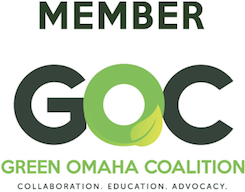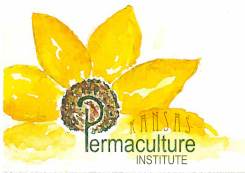Wes Roe, founding chair, Permaculture Credit Union
[notes from a workshop session at the North American Permaculture Convergence, August 30, 2014]
[Historical note: Less than a month later, PCU merged with Sandia Credit Union. There was no warning at the time that such a deal was in the works.]
Forming a credit union takes a lot of documentation. At first PCU was mostly just a savings and loan because didn't have the capital for checking, etc. Takes 4-5 million to start a CU. First new CU in 30 years in Texas/New Mexico.
PC ethics were not recognized by regulators; had to put them at the bottom of documents instead of in the preamble. Ethics wound up in a separate code, separate from the legal documents.
Invisible structure are always stuck in at the end of a PDC in 2 hours or so, but Mollison always said it was the most important chapter.
CUs are great for correcting mistakes. Deposit money and borrow it from yourself.
Money is a construct - US congress affects the rest of the world with the way they set money policy. IMF and World Bank set the world's monetary policy. Chairman of the IMF is chosen by the US, and US corporations benefit from policy.
Visiting Malawi, WR was given a "million billion" dollar bill and also a counterfeit US$2 bill. Zimbabweans run their economy on counterfeit US bills.
LIBOR Rate is what sets bond prices recently caught fixing the rates.
Federal Reserve system has 12 banks, but New York makes all the policy.
Fed controls money supply and interest rates, currently below operating costs of many CUs.
A lot of bank profits have been from playing the bond markets. BOA and Citi are bankrupt from bad speculations. PCU makes more money on credit cards than BOA.
Quantitative easing: more risky way to give people access to credit, by allowing banks to lend money they don't have.
Securities and Exchange Commision (SEC) regulates stock markets, venture capital, commodities markets (price of food), insurance companies and pension plans.
In 1993 one venture capitalist almost caused an economic crash, but the SEC stepped in to bail him out.
Federal & state regulators regulate payday loans, S&Ls, banks, and credit unions.
Payday loans charge 30% and erode poor communities and small towns.
CUNA is the credit union regulator; FID is the insurance.
S&Ls used to just be for mortgages and such, but got deregulated and bad people got in charge. Banks were always more flexible and were heavily gambling in the market before the crash.
Credit Unions are not allowed to play the market. They can only get capital from members except in special circumstances.
PCU had trouble making loans at first because of strict ethics. Would not loan for cars. Biggest problem: too humanistic!
As an S&L, PCU peaked at about 1000 members. Everyone else asked when they would have checking, credit cards, etc. Had to retire accounts of members who were waiting for services to be available.
Social capital is shifting the way the system works. Crowd funding, sharing systems, micro loans, time banks, local currencies, alternative currencies.
In the future, CUs could serve as a bridge between the sharing economy and the larger economic system. How to convert social capital to financial and back?
PCU has created the first ever combined time-bank & money loan, so that loans are repaid in time-dollars as well as US$.
Permaculture is about pushing the cutting edge; other people will copy.
- Log in to post comments




